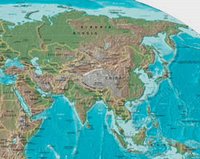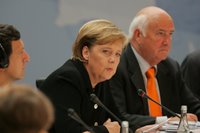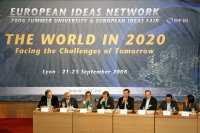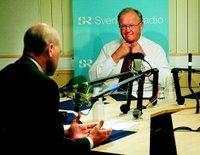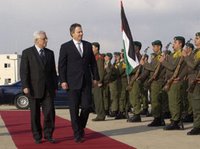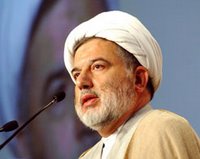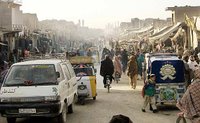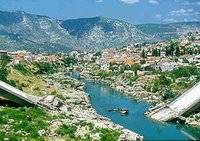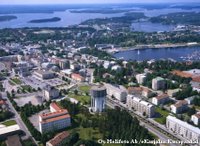Liberal Conservatism
 I promised to come back to David Cameron as well after my comments on - and praise for - Tony Blair.
I promised to come back to David Cameron as well after my comments on - and praise for - Tony Blair.On September 11 he delivered a speech on foreign affairs that has been much commented upon since.
That's primarily because his phrase that Britain should be "solid but not slavish" in its friendship with the United States. The swipe at Blair was difficult not to understand.
But there is far more to the speech than that.
In fact, he makes a rather interesting attempt to distinguish his so called liberal conservatism on international affairs from the so called neo-conservatism that has been doing much of the running in the Anglo-Sachson world in the last few years.
And its worth reading.
I particularly liked the way he looks at the struggle against terrorism around the world:
"Part of the problem we have encountered these past five years is that the struggle has been perceived - as the terrorists want it to be perceived - as a single struggle between single protagonists.
The danger is that by positing a single source of terrorism - a global jihad - and opposing it with a single global response - American-backed force - we will simply fulfil our own prophecy.
We are not engaged in a clash of civilisations, and suggestions that we are can too easily have the opposite effect to the one intended: making the extremists more attractive to the uncommitted
This is not to deny the connections between terrorist activity in different parts of the world.
It is simply an appeal for us to be a little smarter in how we handle those connections.
Our aim should be to dismantle the threat, separating its component parts, rather than amalgamating them into a single global jihad that simply becomes a call to arms."
I think this is entirely correct - and the difference between much of what is dominating on the other side of the Atlantic is profound.
It is by dismantling or disaggregating the situations, and then dealing with them one after the other, that we have the greatest possibilities of making progress.
Lumping them all together in one big battle to which we also give the description "war" probably serves Usama bin Laden better than it serves anything else.
The David Cameron restyling has certainly been about style to a very large extent.
But the speech on foreign policy showed interesting and important substance as well.





